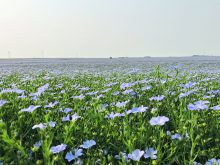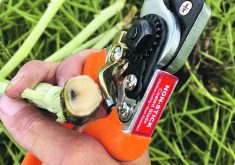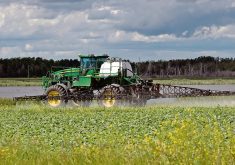SASKATOON — A former deputy agriculture minister of Saskatchewan is pushing for a return to the old CropSphere format for the annual gathering of the province’s crop organizations.
Alanna Koch made the rounds at the 2024 annual general meetings for the various crop groups, pleading with the organizations to turn back the clock.
“I’m planning to ask every commission for the same effort, which is to consider having a joint, collaborative, more comprehensive, conference-type event,” she said at the Saskatchewan Canola Development Commission’s AGM.
Read Also

Why feds imposed EV tariffs
Moe and Kinew have a fight on their hands when it comes to eliminating the EV tariff. Canada has to worry about pissing off the U.S. and Mexico and hundreds of thousands of auto workers.
Koch wants to see something reminiscent of the multi-day event held at TCU Place in Saskatoon, featuring keynote speakers, general sessions and market outlooks.
The 2024 edition had none of that. It was a one-day event featuring a series of annual general meetings.
The grower from Edenwold and long-time provincial deputy minister of agriculture thinks future events should be spearheaded by the Saskatchewan Crop Commissions, a group consisting of the province’s barley, canola, flax, oats, pulses and wheat groups.
SaskCanola chair Keith Fournier liked her suggestions. He fondly recalled the glory days.
“I remember back in the 1990s we used to be up at the Saskatoon Inn and there used to be 1,200 people in that room,” he said. “The electricity, the excitement and the networking opportunities is something I’ll probably never forget.”
The meeting rooms were so full that farmers spilled into the hallways of the hotel.
SaskCanola executive director Tracy Broughton said the province’s crop groups intended to have a few keynote speakers for this year’s event. Those plans were derailed when Prairieland Park told them midway through the year that the room they used to host larger sessions was booked for a trade show.
“We had to pivot pretty quickly and just make a decision and we figured that maybe we should condense things and try to put it all into one day,” she said.
The meeting location was switched to the Western Development Museum and the one-day format meant there was no time for market outlooks, keynote speakers or general sessions.
Broughton said Koch wasn’t the only farmer upset by the shorter version of the annual event and the “silo” approach where each commodity group had its own meeting with no joint sessions.
“I heard the message loud and clear from several people in the room that farmers grow multiple crops, so we just need to make sure we’re very co-ordinated and making it as easy as possible for the farmers to attend and enjoy themselves.”
Broughton said the province’s crop organizations will soon debrief with their respective boards and discuss what next year’s event will look like.
In the meantime, Fournier was still reminiscing about past events, like a recent one held at Prairieland featuring a bone-chilling lunch.
“I don’t know if anybody remembers about three or four years ago, it was -40 C and you needed to have your toque and mitts on as you’re eating frozen food,” he said with a laugh.
















